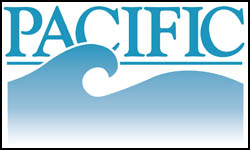As we approach the end of the 2020/21 tax year, you should review your pension contributions made since 6 April 2020 and consider whether or not you should make a further one-off pension contribution before 5 April 2021 to save tax and to utilise any carried-forward relief from 2017/18 which will be lost if not used by then.
There are limits on the amount that you may put into your pension if you make the contribution personally. Also, irrespective of whether you or your employer makes a pension contribution it is important to remember that the standard annual allowance for 2020/21 for all pension contributions is £40,000 plus any unused allowance brought forward from any of the previous three tax years. Your annual allowance may be lower (known as the tapered annual allowance) if your income exceeds £200,000 or if you are only entitled to the Money Purchase Annual Allowance of £4,000 because you have previously flexibly accessed your pension savings. We will be happy to discuss with you the amount that you are considering putting into your pension to ensure that you do so tax efficiently.
Should your total pension contributions for the tax year exceed your annual allowance plus any available brought forward relief from earlier years you will incur an Annual Allowance Excess Charge. If the charge is more than £2,000, and this has arisen because your pension contributions exceeded £40,000, you can ask your pension provider to pay HM Revenue & Customs for you out of your pension pot, but you must tell them to do so before 31 July in the year following the year in which the tax year to which the annual allowance charge relates ended. Put simply, for the 2020/21 charge, you have until 31 July 2022 to notify the scheme.
If, however, the annual allowance excess charge has arisen because your pension contributions did not exceed £40,000 but, instead, exceeded the tapered annual allowance or the money purchase annual allowance you may still ask the pension scheme to pay the charge for you out of the pension pot, but they do not have to do this and the scheme may have it’s own deadline for you to request this. The deadline could be as soon as 31 July 2021, therefore, you should also consider ensuring that your 2020/21 Self Assessment Tax Return is prepared soon after 5 April 2021 so that so that the annual allowance excess charge can be calculated leaving you enough time to ask the scheme to pay this for you. If you delay and miss the scheme’s deadline, this will increase your tax payment due on 31 January 2022.
Should you wish to discuss this further, then please do not hesitate to contact us.
